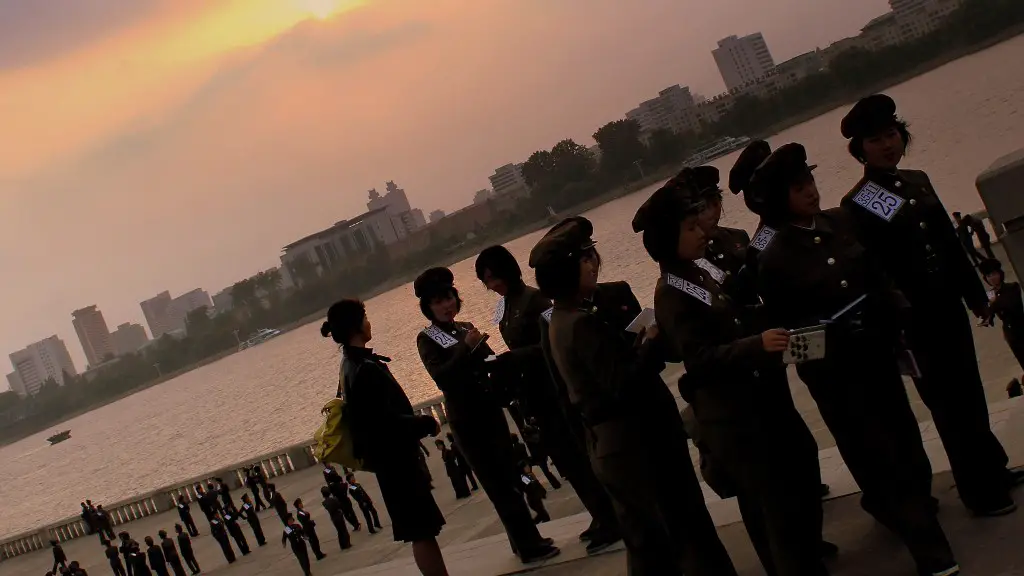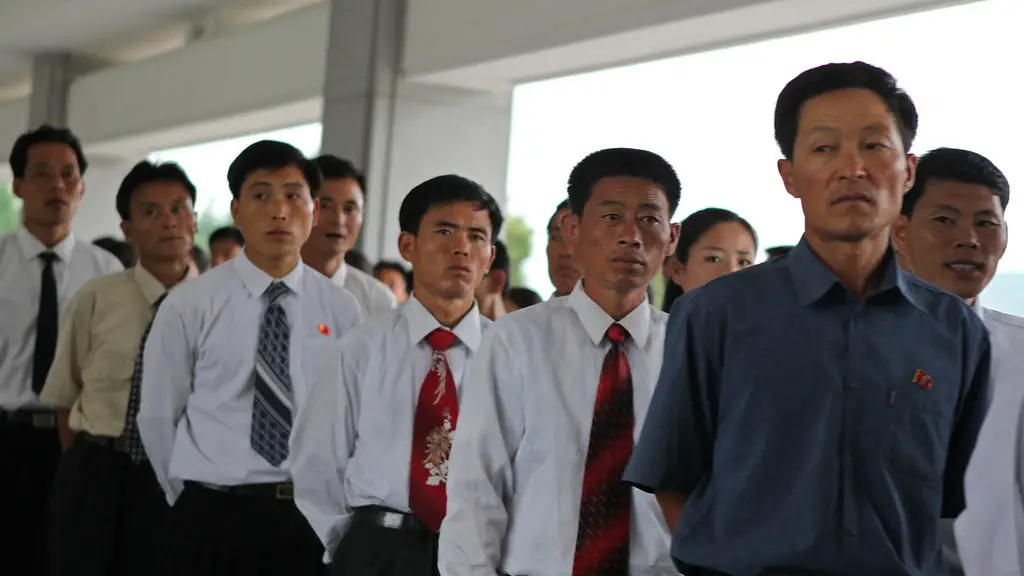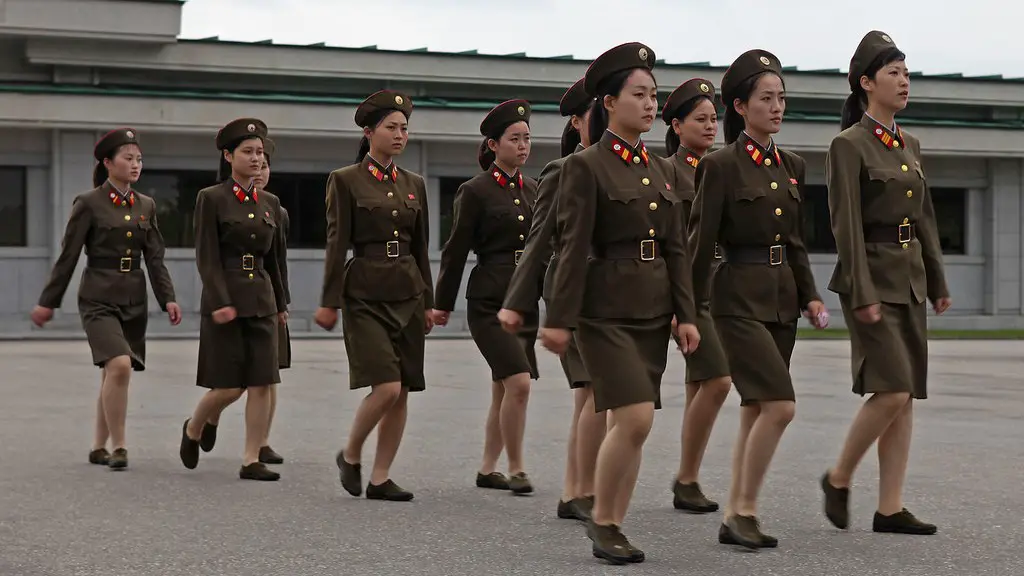International Sanctions & Isolation
North Korea is a heavily-regulated, isolated and enigmatic nation. Historically one of the world’s most impermeable dictatorships, its citizens remain cut off from both the modern world and international contacts. An estimated 20,000 of its 25 million people have been denied the right to leave. In 2018, the US imposed one of its toughest ever rounds of sanctions on North Korea, claiming that it would completely cut off the country’s export income thereby pressurizing it to verifiably denuclearize. The United Nation Security Council, in response to North Korea’s expanding nuclear weapons program in recent years, unanimously adopted yet more economic sanctions, this time banning the export of 90% of the country’s refined petroleum products. With borders closed, it is now impossible for any outsider to travel to or from North Korea.
Internal Politics
At the heart of North Korea’s internal politics are some of the world’s most oppressive policies. Supreme leader Kim Jong-un is backed by an authoritarian ruling party and an all-powerful cult of personality that has been instilled since 1948. The ‘Great Leader’ has complete executive control over daily life and stifles all dissent with immense political and ideological pressure. Major political events and bouts of international tension notwithstanding, life in North Korea remains largely unchanged, repressed and brutalized. Even before the international sanctions and restrictions began to bite, the North Korean people suffered from extreme poverty, inadequate medical care, and a severe lack of basic human rights.
Information Control & Media Censorship
The state exercises an extremely tight grip of surveillance and control over the country’s media and all forms of communication. The regime strenuously monitors and censors foreign films, music and literature – anything which it deems offensive is immediately banned. There is no free media or internet access whatsoever and only a miniscule percentage of North Koreans enjoy a privileged access to the global web. Even within the elite, it is risky to access information deemed to be harmful. News and entertainment media is highly restricted and heavily regulated by the government; what information is fed to the general population is heavily distorted in order to propagate a particular regime’s narrative.
Human Rights Violations
The crippling sanctions have only added to the impoverished circumstances of the North Korean population. The country’s system of labor camps is also notorious; prisoners are often detained without trial and subjected to systematic torture, extortion and inhumane treatment. People are forcibly conscripted into the military and used as ‘slave laborers’ in the State Army Construction Unit. Political and religious dissidence remains strictly prohibited and those suspected of engaging in it are immediately arrested for crimes against the State. Human rights activists claim that the North Korean government is perpetuating some of the worst known violations of human rights in the world today.
Radioactive Contamination & Public Health
Nuclear fallout from North Korea’s nuclear tests has changed the physical landscape of the country and added a new dimension to its environmental catastrophes. The United Nations International Atomic Energy Agency estimates that a significant part of North Korea is now radioactive due to frequent nuclear testing. Radioactive air pollution has been measured on an unprecedented scale and the greater public health effects remain unknown. The country’s infrastructure too has suffered: the inadequate water supply, sanitation and electricity system add to an existing health and safety risk.
The Netherlands-North Korean Deal
In June 2019, after weeks of talks and negotiations between North Korean Foreign Minister Ri Yong Ho and Dutch diplomat Johan Verbeke, the two countries announced a landmark 100 million dollar aid deal to alleviate poverty in North Korea. Under the agreement, the Dutch government will provide tourism, consumer goods, development projects and other forms of assistance to North Korea through government-sanctioned non-government organizations (NGOs). The agreement was seen as a breakthrough step in the direction of establishing peace and stability on the Korean peninsula.
United States & International Action
The US has consistently maintained an unyielding stance on North Korea and has strongly opposed any form of diplomatic relations. In the face of continued nuclear testing and the missile launch saga, the US has warned that the country could face ‘grave danger.’ It recently slapped more sanctions on the country in an effort to prevent it from advancing its nuclear and ballistic missile programs. China, Japan and South Korea have also denounced Pyongyang’s actions and are working together to bring about a viable solution.
The Risk of Travel to North Korea
In the absence of even the most basic amenities, North Korea is home to one of the poorest populations in the world. Citizens living within the country’s 20-mile border are subject to years of government-mandated food rationing, meaning that many North Koreans face extreme food insecurity. Those who attempt to cross the border, and the country’s tight control of passes and travel visas, can carry with them the risk of being arrested, detained and tortured. For visitors, being unknowingly engaged in seemingly innocent activities is enough to land them in hot water and in a lot of cases, prison.
Anti-American Propaganda & Public Perception
Statements made by US President Donald Trump, who has labelled North Korea’s leader as a ‘Rocket Man’ and the country itself as a ‘rogue state’ have done nothing to improve opinion of the US abroad. The regime’s official newspaper often takes aim at the US and has not shied away from using extremely aggressive rhetoric. Anti-American sentiment is pervasive throughout North Korean society and the deep-seated hostility towards the US runs so deep that even North Korean defectors seek to continue to harbor malignant views about the country.
US-North Korean Tension & Security Concerns
For the last few years, the US-North Korean complex has been in a state of constant tension, with Kim Jong-un ratcheting up the stakes with ballistic missile tests and nuclear threats. The heightened security situation has alarmed leaders in the region, particularly South Korea and Japan. The US too is aware of the dire security implications, which is why recent meetings between Trump and Kim have been aimed at deescalating the situation and finding a viable path to peace.
The Road Ahead
Without change in policy, it is hard to foresee an optimistic near future for North Korea. Any visit is likely to come with a wealth of risks, including the potential of breaking the law and landing up in an inconvenient diplomatic cul-de-sac. Until Washington and Pyongyang find common ground and a viable negotiating platform, North Korea and its citizens, it is likely that North Korea will remain subject to international isolation and economic subjugation. Furthermore North Korea remains a bastion of human rights abuses and will not be in a state of true transformation until the rights of its citizens are given immediate priority.
International Pressure & Reaction
International pressure on North Korea has been slowly building for years. Sanctions levied by multiple countries against North Korea were the main driver behind the first successful summit between the two countries in 2018. Although no irreversible progress has been made yet in securing an agreement over denuclearization, the United Nations has hailed it as a major step in the right direction. The US government has long labeled North Korea as a major security threat and is implementing sanctions on government officials and companies to nuclear scientists and banks as part of its maximum pressure campaign.
Moral Implications & Humanitarian Situation
The international economic response to North Korea’s nuclear provocations has been harsh, resulting in millions of innocent citizens ultimately paying the price. Competition and a fear of isolationism have defined contemporary response to North Korea’s bellicose rhetoric and the disastrous humanitarian situation has been overlooked. Most citizens within the country are unable to access basic necessities such as food, medicine and energy. The country is also subject to a severe lack of medical care and a considerable environmental crisis as a result of radiation fallout from its nuclear weapons tests.
International Legal Framework
The United Nations Security Council has enforced multiple resolutions aimed at resolving the North Korean nuclear issue. Under UN resolutions, North Korea is prohibited from engaging in any nuclear activity, while sanctions have been imposed on imports related to its nuclear, chemical and biological weapons programmes. The latest round of sanctions prohibits the export of coal, iron, seafood and other commodities, which are estimated to make up over a third of the country’s export earnings. It also requires all countries to expel North Korean citizens visiting or living abroad who are involved in activities deemed to violate the sanctions.
Regional Cooperation & the Need for Diplomacy
In order to bring about lasting change, diplomatic solutions must replace military bluster and international saber-rattling. North Korea’s relationship with the US is fraught with mistrust and in order to build a sustainable peace, it is imperative that both countries work towards a negotiated settlement. It is also important for China, Japan and South Korea to come together and create a unified response to the current nuclear crisis. Regionalism has proven to be the most effective avenue in the past and it strikes a chord with regards to peace-building efforts moving forward.



